Dates in Ramadan 2025: The Historical Significance
The historical significance of dates during Ramadan holds deep cultural and religious importance in Muslim communities. Ramadan is a sacred month observed by Muslims worldwide, marked by fasting from dawn to sunset. Dates play a crucial role during this holy month, providing sustenance and spiritual significance.
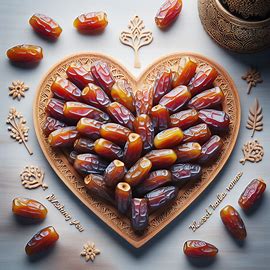
1. Origin of Ramadan: Ramadan is the ninth month of the Islamic calendar and is considered the most sacred month.
-
- The name “Ramadan” comes from the Arabic root “ar-ramad,” which means scorching heat.
- In 610 A.D., the angel Gabriel appeared to Prophet Muhammad صلی اللہ علیہ و آلہ وسلم and revealed the Quran, the Islamic holy book, during this month. This event is known as Laylat Al-Qadar or the “Night of Power.”
- Muslims fast during Ramadan to commemorate the revelation of the Quran.
2 . Spiritual Growth and Self-Discipline:
-
-
- During Ramadan, Muslims aim to grow spiritually and strengthen their relationship with Allah (God).
- Key practices include:
- Praying: Muslims engage in additional prayers and recite the Quran.
- Intentional Actions: They strive for selflessness, kindness, and intentional actions.
- Fasting: Muslims fast from dawn (Suhoor) until sunset (iftar), refraining from food, drink, and sexual intercourse.
- Fasting is obligatory for all Muslims (except specific groups), and missed days can be made up later in the year.
-
3 . Breaking the Fast with Dates:
-
- Prophet Muhammadصلی اللہ علیہ و آلہ وسلم is believed to have broken his fast with dates and water.
- As a result, dates hold a special place in the Ramadan ritual.
- Dates are rich in nutrients, easy to digest, and provide essential sugars after a day of fasting.
- Muslims traditionally eat dates at both Suhoor (pre-dawn meal) and iftar (evening meal).
4 . Community and Togetherness:
-
- Meals during Ramadan are opportunities for Muslims to gather with others in the community.
- Suhoor occurs before the first prayer of the day, and iftar begins after the sunset prayer.
- Sharing dates and other foods fosters a sense of togetherness and unity.
Remember, the act of fasting during Ramadan goes beyond abstaining from food—it’s a time for reflection, gratitude, and spiritual growth.
5 .. The Significance of Dates in Ramadan
Breaking the fast with dates during Ramadan has a rich historical and religious significance in Islam, deeply rooted in the traditions of the Prophet Muhammad. Here are some key points highlighting its importance:
- Prophetic Tradition: The Prophet Muhammad is reported to have broken his fast with dates, and this practice is emulated by Muslims worldwide as a Sunnah (a tradition based on the Prophet’s actions)1.
- Nutritional Value: Dates are a quick source of energy and nutrients, which are beneficial after a day of fasting. They help in quickly replenishing energy levels and are easy to digest1.
- Symbolic Gesture: Eating dates to break the fast is also a symbolic act that represents the simplicity and piety of the Prophet Muhammad’s lifestyle2.
- Religious Texts: Dates are mentioned more than 20 times in the Quran, emphasizing their significance in Islamic dietary habits1.
- Cultural Continuity: The tradition of breaking the fast with dates has been passed down through generations, maintaining a sense of continuity and community among Muslims during Ramadan1.
This tradition underscores the blend of spiritual devotion and practical wisdom in Islamic practices, providing both a connection to the Prophet’s Sunnah and a nutritious way to end the daily fast.
6 . The Famous Dates Varieties
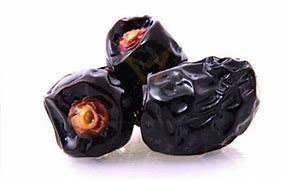
A . Ajwa (Arabic: عجوه) is a cultivar of the palm date widely grown in Medina, Saudi Arabia. It is oval-shaped and medium-sized with black skin. Ajwa dates have a fascinating history that intertwines with the cultural and religious heritage of the Middle East, particularly Saudi Arabia. Here’s a brief overview:
Ajwa plantations surround Medina and thousands of tons are exported from them annually.[1] However, it is not exclusive to Medina and is grown elsewhere on the Arabian peninsula and in the Sahara desert.[citation needed]
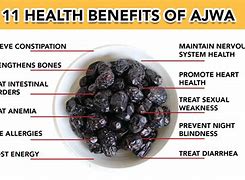
- Origins: The exact origin of Ajwa dates is not definitively known, but they are believed to have been around for over 50 million years. Historians suggest they may have originated in regions like Mesopotamia, Egypt, the Persian Gulf, or India1.
- Cultivation and Spread: Evidence of Ajwa dates cultivation dating back 7,000 to 8,000 years has been found in Egypt. The ancient Romans and Hebrews also valued these dates for various uses, including food, wine, vinegar, and crafting utensils1.
- Alexander the Great: It is said that Alexander the Great brought Ajwa date seeds to Pakistan and the Middle East during his conquests, leading to the widespread cultivation of Ajwa dates in these regions1.
- Global Journey: Over the centuries, Ajwa dates traveled across the world. Marco Polo reportedly took seeds to Italy, and Spanish conquerors brought them to the Americas in the 1700s. Today, they are also grown in African countries1.
- Saudi Arabia: The largest producer of Ajwa dates is Saudi Arabia, with many farms located within the sacred precincts of Haram and near the Quba mosque. These dates are especially popular among Hajj and Umrah pilgrims1.
- Religious Significance: Ajwa dates are highly revered in Islam due to their association with the Prophet Muhammad. They are often consumed during Ramadan and hold a special place in Islamic traditions2.
- Nutritional Value: Ajwa dates are not only cherished for their unique history but also for their nutritional content, including carbohydrates, fiber, vitamins, and minerals2.
This rich history and the health benefits associated with Ajwa dates make them a prized variety among date fruits globally.
B . Medjool Dates:
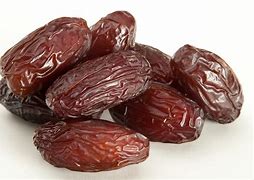
-
- Known as “The King of Dates” and “The Diamond of Fruits,” Medjool dates were once reserved for royalty and lavish celebrations.
- Originating from Morocco, these large, chewy dates have a deep amber-brown color and wrinkled skin.
- Their heavenly sweetness comes with hints of cinnamon, wild honey, and caramel.
- Nutritional Benefits:
- Low glycemic index, making them suitable for blood sugar control.
- Rich in antioxidants with potential anti-cancer and heart-health benefits1.
- Excellent energy source for pre-workout smoothies.
- Enjoy them whole as a quick snack or stuff them with nuts, peanut butter, or jellies. They also enhance milkshakes and desserts.
C .Deglet Noor Dates:
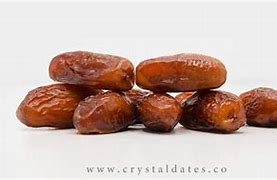
-
- These dates were first cultivated near the city of Touggourt in the Algerian Sahara.
- They have a lighter color, a firm texture, and a slightly nutty flavor.
- Nutritional Benefits:
- Good energy source.
- Rich in dietary fiber for digestive health.
- Contains sodium and potassium for maintaining water balance and blood pressure.
D . Sukkary Dates:
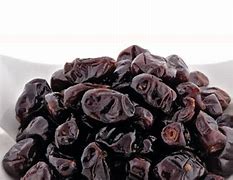
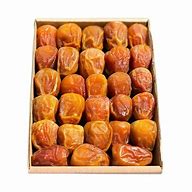
-
- Light golden brown with a small cone-shaped body, chewy flesh, and firm, wrinkly skin.
- Less sugary compared to other varieties.
- Nutritional Benefits:
- Good energy source.
- Rich in dietary fiber for digestive health.
- Contains sodium and potassium for maintaining water balance and blood pressure2.
E . Ambera Dates:
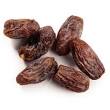
-
- Renowned for their enormous size and therapeutic properties.
- Originating from the Saudi Arabian city of Medina.
- Meaty, soft, and among the biggest Medinah dates3.
F Mabroom Dates:
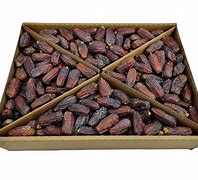
-
- Unique Characteristics:
- Natural caramel flavour.
- Soft and juicy.
- Nutritional Benefits:
- Rich in fiber, potassium, and iron.
- Supports digestion and prevents anaemia.
- Improves male fertility and strengthens bones.
- !Mabroom Dates
- Unique Characteristics:
G Mazafati Dates:
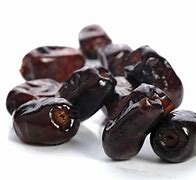
-
- Unique Characteristics:
- Soft, moist, and chewy texture.
- Caramel-like taste.
- Nutritional Benefits:
- Rich in vitamins (A, B-complex, C, E, K) and minerals (phosphorus, calcium, iron).
- Used in Iranian dishes and desserts.
- Popular for their health benefits worldwide.
- !Mazafati Dates
- Unique Characteristics:
H Qalmi Dates:
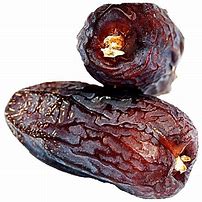
-
- Unique Characteristics:
- Natural caramel flavour.
- Soft and sweet.
- Nutritional Benefits:
- High in fibre, aiding digestion.
- Improves brain function and memory.
- Induces natural labour in pregnant women.
- !Qalmi Dates
- Unique Characteristics:
I Zahidi Dates:
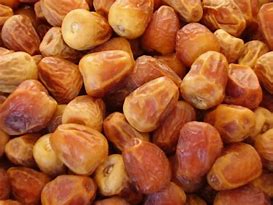
-
- Unique Characteristics:
- Light golden colour.
- Semi-dry texture.
- Nutritional Benefits:
- Good energy source.
- Rich in dietary fibre.
- Contains essential minerals.
- Unique Characteristics:
J . Kimia Dates:

-
- Unique Characteristics:
- Medium-sized.
- Soft and sweet.
- Nutritional Benefits:
- Good energy source.
- Rich in vitamins and minerals.
- Versatile for snacking and cooking.
- !Kimia Dates
- Unique Characteristics:
K Omani Dates:
-
- Unique Characteristics:
- Grown in Oman.
- Vary in colour and texture.
- Nutritional Benefits:
- Good energy source.
- Rich in vitamins and minerals.
- Used in traditional Omani cuisine.
- Unique Characteristics:
Remember, dates are not only delicious but also packed with nutrients. They’re a natural source of sugar, making them a healthier alternative to refined sugars. Incorporate these delightful fruits into your meals and enjoy their sweet benefits!
Think 100 times before you take a decision, but once that decision is taken, stand by it as one man.
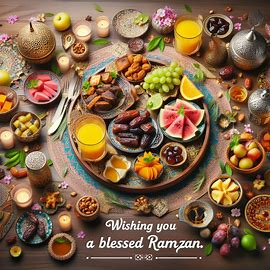
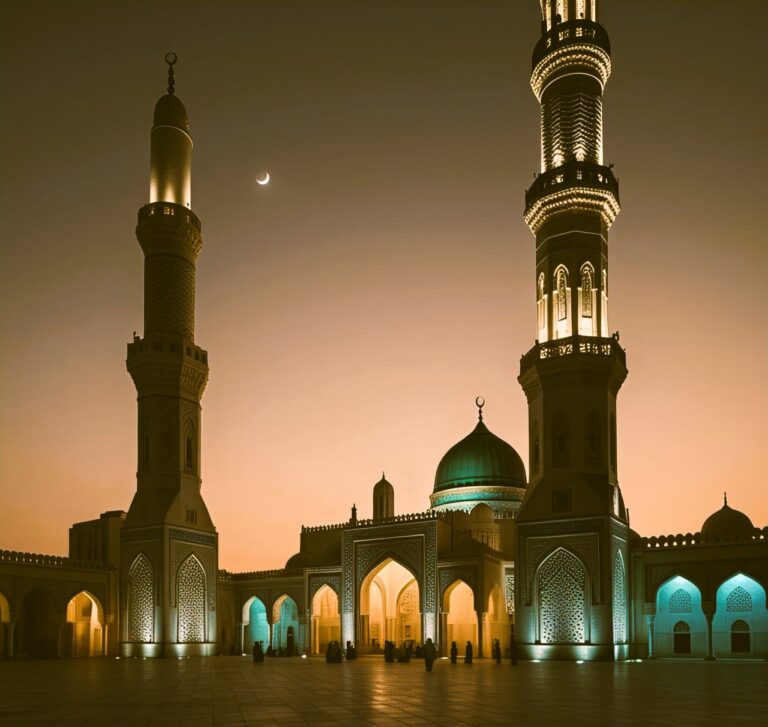
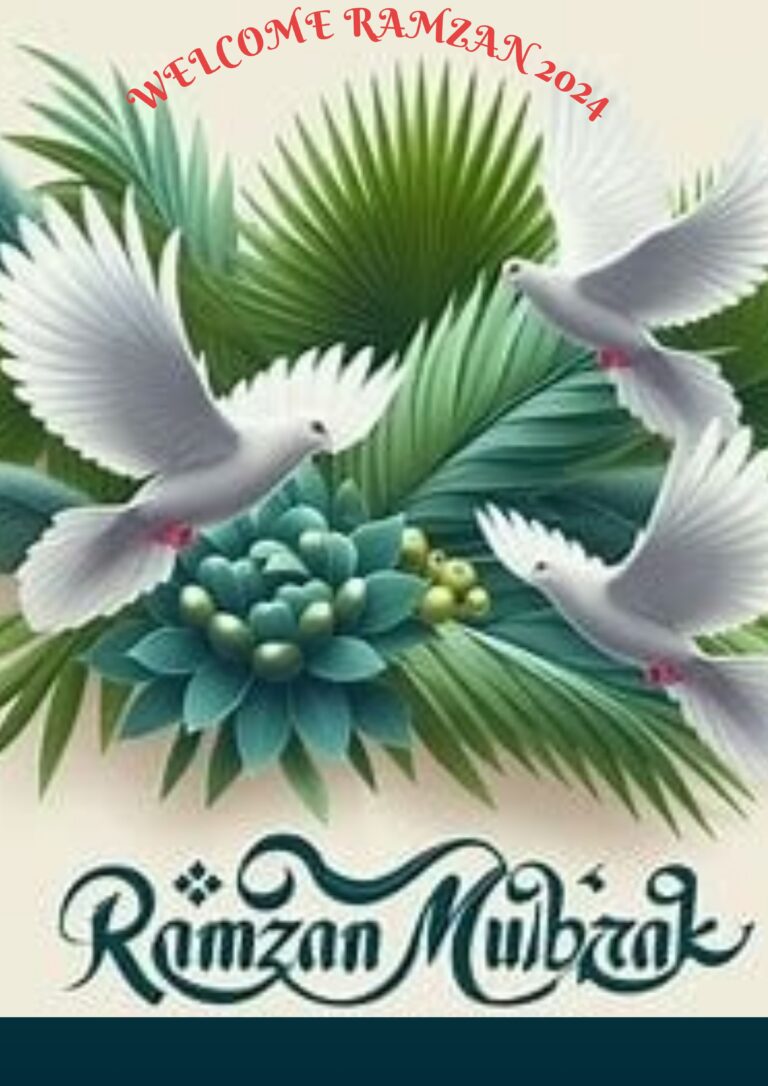
Very interesting and informative
Thanks for information